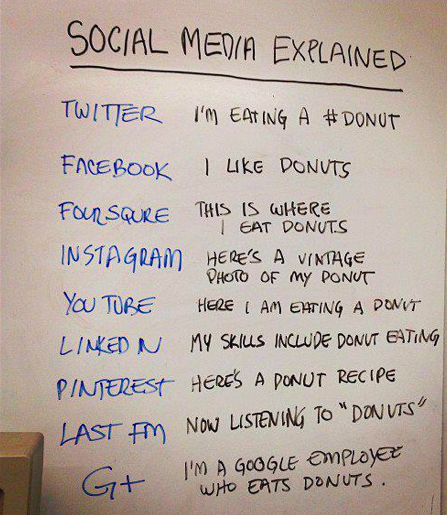By Jan Willer
Social media and other technologies have changed how we communicate. Consider how we coordinate events and contact our friends and family members today, versus how we did it 20 or 30 years ago. Today, we often text, email, or communicate through social media more frequently than we phone or get together in person.
Now contrast that with psychotherapy, which is still about two people getting together in a room and talking. Certainly, technology has changed psychotherapy. There are now apps for mental health issues. There are virtual reality treatments. Psychotherapy can now be provided through videoconferencing (a.k.a. telehealth). But still, it’s usually simply two people talking in a room.
Our psychotherapy clients communicate with everyone else they know through multiple technological platforms. Should we let them “friend” us on social media? Should we link to them on professional networking sites? Is it ok to text with them? What about email? When are these ok and not ok?

Social Media Explained (with Donuts). Uploaded by Chris Lott. CC-BY-2.0 via Flickr.
Some consensus is emerging about these issues. Experts agree that psychotherapists should not connect with current or former clients on social media. This is to help preserve the clients’ confidentiality. Emailing and texting are fine for communicating brief messages about the parameters of the session, such as confirming the appointment time, or informing the psychotherapist that the client is running late. Research has shown that emotional tone is frequently miscommunicated in texting and email, so emotion-laden topics are best discussed during the session.
How do we learn about new people we’ve met? In the past, we’d talk directly to them, and maybe also talk to people we knew in common. Now everyone seems to search online for everyone else. This happens frequently with first dates, college applicants, and job applicants.
Again, contrast this with psychotherapy. Again, two people are sitting in a room, talking and learning about each other. When is it ok for a psychotherapist to search for information about a client online? What if the psychotherapist discovers important information that the client withheld? How do these discoveries impact the psychotherapy?
No clear consensus has emerged on these issues. Some experts assert that psychotherapists should almost never search online for clients. Other experts respond that it is unreasonable to expect that psychotherapists should not access publicly available information. Others suggest examining each situation on a case-by-case basis. One thing is clear: psychotherapists should communicate with their clients about their policies on internet searches. This should be done in the beginning of psychotherapy, as part of the informed consent process.
When we’ve voluntarily posted information online–and when information about us is readily available in news stories, court documents, or other public sources–we don’t expect this information to be private. For this reason, I find the assertion that psychotherapists can access publically available information to be more compelling. On my intake forms, I invite clients to send me a link to their LinkedIn profile instead of describing their work history, if they prefer. If a client mentions posting her artwork online, I’ll suggest that she send me a link to it or ask her how to find it. I find that clients are pleased that I take an interest.
What about the psychotherapist’s privacy? What if the client follows the psychotherapist’s Twitter account or blog? What if the client searches online for the psychotherapist? What if the client discovers personal information about the psychotherapist by searching? Here’s the short answer: psychotherapists need to avoid posting anything online that we don’t want everyone, including our clients, to see.
Ways to communicate online continue to proliferate. For example, an app that sends only the word “Yo” was recently capitalized to the tune of $2.5 million and was downloaded over 2 million times. Our professional ethics codes are revised infrequently (think years), while new apps and social media are emerging monthly, even daily. Expert consensus on how to manage these new communications technologies emerges slowly (again, think years). But psychotherapists have to respond to new communications technologies in the moment, every day. All we can do is keep the client’s well-being and confidentiality as our highest aspiration.
Jan Willer is a clinical psychologist in private practice. For many years, she trained psychology interns at the VA. She is the author of The Beginning Psychotherapist’s Companion, which offers practical suggestions and multicultural clinical examples to illustrate the foundations of ethical psychotherapy practice. She is interested in continuing to bridge the notorious research-practice gap in clinical psychology. Her seminars have been featured at Northwestern University, the University of Chicago, and DePaul University.
Subscribe to the OUPblog via email or RSS.
Subscribe to only psychology articles on the OUPblog via email or RSS.
The post My client’s online presence appeared first on OUPblog.




That's right. We need to take one or two steps further, and discard the original description to make our novel unique.
Morgan Mandel
http://www.morganmandel.com
Deb,
Informative post.
Margot